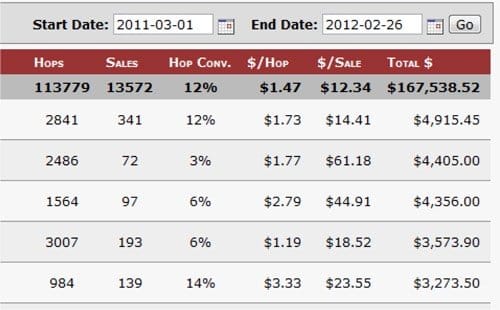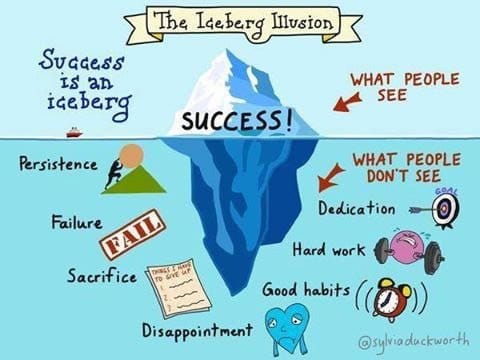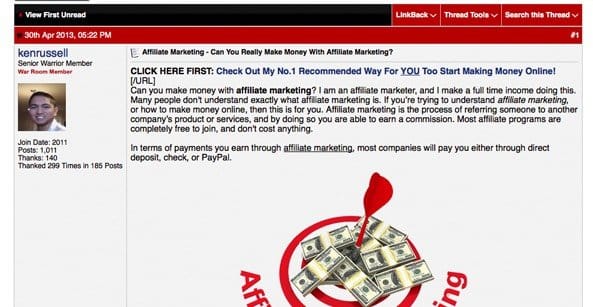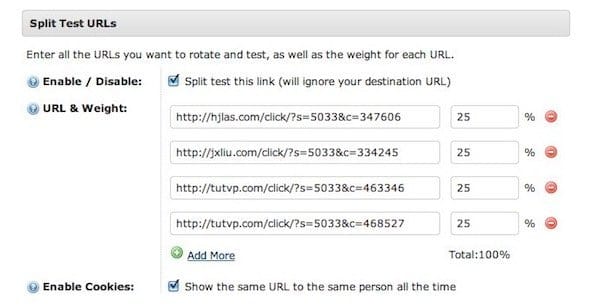10 Reasons Why You’re Not Earning with Affiliate Marketing
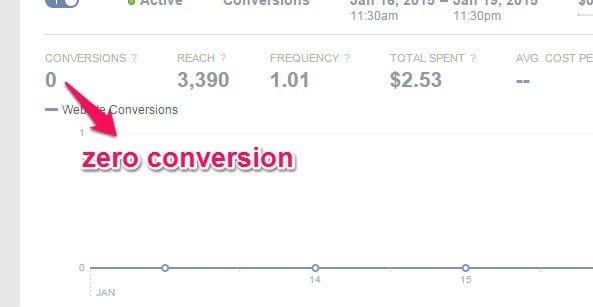
Affiliate marketing is a very interesting career choice from an outside perspective. Very few other careers have such a low barrier to entry, and yet such a high failure rate. Going into it unprepared can lose you a lot of money, and you can struggle for years without turning much of a profit. Meanwhile, some of the most successful affiliate marketers are out there making thousands per week, or even per day.
It’s not the potential for success that keeps you going, is it? Every career has highly successful people. No, there’s something special in the combination of factors that lead to such fanatic devotion to failure. It’s the ease of entry. It’s the possibility of success on a large scale. It’s the ability to do it all from home.
Most importantly, though, it’s the fact that there aren’t really secrets in the affiliate marketing industry. The most successful marketers are happy to share their experiences and give out advice. There are thousands upon thousands of blog posts detailing exactly what you need to do to succeed, with a little work. The only secret is the niche itself, and that’s easy enough to pick up from watching the pros and from monitoring what offers come and go.
And yet, here we are; thousands of marketers trying and failing to find any success, struggling to make more than a few dollars over the cost of their web hosting. What’s going wrong? How can you fix it?
1. You’re Aiming Too High
There’s a common bit of motivational advice thrown around in business conferences and elementary schools you might be familiar with: “Shoot for the moon; even if you miss, you’ll be among the stars.”
This is a pretty dangerous piece of advice, all things considered. Shooting for the moon requires a heck of a lot of planning, time, investment, and work. Imagine if NASA put everything together for a moon landing and missed. How much of a laughingstock would they be?
After all, landing “among the stars” just means landing in the infinite, empty void of space. Who cares if you’re surrounded by them, in a cosmological sense, if that just means you’re an infinitesimal speck that’s far below their notice?
What does this have to do with affiliate marketing? Essentially, it means aiming for offers that are beyond your ability to convert. Say you find an offer that pays you $100 per conversion, plus a residual of $20 a month. That sounds great! It’s also going to be very hard to convince users to actually buy. If you’re a newbie marketer with no established trust or reputation, no one is going to want to convert through your offer. They’ll be skeptical, and if they do research and convert, they’ll do it later on their own volition without your cookie or code. You earn nothing.
There’s nothing inherently wrong with aiming for this big offers. You just need to understand that they’re fundamentally a long-term investment. You need to build the audience, trust, reputation and position necessary to get an audience that might convert. You also need to stick with it. You won’t make much if anything in the first few months, and that can be extremely discouraging. Giving up, though, just guarantees that you make nothing.
2. You’re In A Hurry
This happens in every industry and in every career path. People new to it decide they want to get into it, and they dig in. They dive in head-first before they’ve learned to swim. Some of them wash out immediately, and that’s fine. They can find a different career.
Others do all the preparation they can. They research hosting, they set up a quality site, they pay for training courses, they enroll in offers. They write excellent content, and they work to maintain a blog with daily updates. Everything is set for their success, but that success doesn’t come.
Days pass, then weeks. Weeks turn into months, and their imagined profits aren’t rolling in. They decide they’re putting too much effort in and scale back. They publish less, they promote less, they spend less. They earn less, but how much were they earning?
Affiliate marketing success relies on two things; traffic and trust. Both of these take a long time to build. Traffic requires SEO and marketing, which take time. Trust takes time to build. Users want to know you’re not scamming them, that you’re not going to disappear at the first sign of any danger, or even just once you’ve hit a profit.
Make no mistake. Affiliate marketing is a business, and every business needs to spend money to make money. Many businesses barely turn a profit for the first several years of operation. They know that they’ll reach a tipping point and will profit eventually, though, and that’s what makes them successful. They keep at it until they do.
3. You’re Following the Wrong Advice
Affiliate marketing is an industry packed full of people who are trying to sell courses, products, software and consulting about how to be a great affiliate marketer. It’s a self-serving cycle of terrible advice and small-minded individuals, and it’s depressing to see.
Real affiliate marketers, those who find a ton of success, they aren’t selling their marketing advice. Or, if they are, it’s not their primary business model. It’s more likely to be the free advice they publish on their website to help build trust.
Many of the so-called gurus that offer books and courses for sale tend to be minimally successful. It’s marketers marketing marketing software to marketers so those marketers can market the same marketing software to other marketers.
The problem is, the advice these people sell tends to be distorted, off-focus, old, or just not that useful. You’re paying for information you can find for free, or information that isn’t quite accurate, or information that’s not deep enough to tell you what you really know. Worse, if you’re a novice marketer, you have no way of knowing if the advice you’re getting is sound.
Honestly, I recommend avoiding any sort of paid courses or content until you’re at least making some money. You can get by perfectly well with the content you find for free online. If you want, you can also try to approach a successful marketer about a mentorship, assuming they don’t sell that as a service. Only once you’re experienced enough to know valuable advice when you see it should you attempt to pay for that advice.
4. You’re Isolating Yourself
Contrary to the above, I don’t recommend that you ignore all of the advice online and forge your own path. People have walked this road before you. They have posted signs, left helpful tips, and worn down a trail. You can walk off through the woods on your own, or you can follow the groundwork that has been laid by generations before you.
The first thing you should do is pick up and follow a handful of blogs. There are dozens of them, so you really have your pick of who you want to listen to. I recommend looking for bloggers who are using the same methods or the same niche you want to use. You won’t really be competitors. There’s plenty of room in the affiliate marketing world for everyone.
Another tip is to reach out to a few prominent bloggers and make yourself known. Strike up conversations, forge a relationship, and get their advice when you need it. They’ll be happy to share. If they’re not happy to help, if they tell you off or try to discourage you, drop them and find someone else. You don’t need that kind of negativity in your life.
You can do this through blog comments, but you can also do it through social media. Find their pages and strike up conversations there; they’ll reply, because encouraging comments is one of the most necessary actions to running a successful social profile. Take it from there.
5. You’re Not Monitoring Statistics
How much traffic is reaching your site? Where are they going, what are they doing, when they’re there? How many of them are clicking your affiliate links, and out of that, how many are converting and getting you paid?
Here’s another question. You have two landing pages, each promoting different features of the offer you’re selling. Which one is doing better?
Another. What types of people are converting? How old are they, what income levels are they on average, what kind of jobs do they work?
All of this is information you can get through analytics, whether you use Google Analytics, Raven Tools, Facebook Insights or some other tool. You just have to learn how to use them.
6. You’re Using A Scam Network
The sad fact of life is that there are a lot of novice affiliate marketers out there, and there are a lot of shady people who want to take advantage of them. There are affiliate markets out there, networks designed to be the connection between you and an offer, to ensure that you’re reporting data properly and make sure you get paid. There are also affiliate markets out there that skim views off the top, paying you less than you deserve for your offers.
Always do your research before you invest in using an affiliate network. Look into the sorts of offers they have available, and run those offers through a site like Offervault to see if they’re more valuable elsewhere. You can even check with the business itself to see if they have a direct affiliate program, cutting out the middleman.
This also couples with the previous step; record your traffic statistics and referrals. If at all possible, try to gain some verification of conversions when you make them. This way, if a conversion is lost in the process and the network says it was invalid, you can prove otherwise.
Of course, this won’t save you form a scam network. The worst networks will just ignore your support or, worse, close out your account and keep whatever you had earned but not cashed out.
7. Too Much Selling, Not Enough Marketing
When you want to convince someone that they should buy a product, how do you think you would go about it? Do you staple a picture of the product onto a hot woman and hope sex sells? Do you talk about the features of the product and how good a deal it is that you’re offering?
All of that is wrong. It’s a poor approach. People are already wary of a sale, and will shop around to make sure it’s actually the best value. That’s why you can’t claim your $40 product is marked down from $120, because the user can just go to the original site and see it’s also $40 and ignore your offer entirely.
Instead, what you need to do is learn your customers. Figure out who they are and what they want. More importantly, figure out what problems they’re having in life that are driving them to see your site and your offer. Explain how the product you’re selling is something that can help them, and how. Only once they’re convinced they need it can they be convinced they should buy it.
8. You’re Not Testing
Any form of marketing, affiliate or otherwise, is an evolving process. Over time, your message, your audience, your branding, and your perspective will all change. Even if you strike upon a great ad right off the bat, that ad will gradually lose effectiveness over time until it’s no better than a poor ad.
The way to defeat this is to test everything on a rolling basis. Landing pages are the primary focus for a lot of your testing. You’ll need to dig into two concepts, which are both too big to cover in tip eight out of ten in an unrelated blog post. These concepts are landing page optimization and split testing.
Starting with the second, split testing is the idea of taking one object, creating a copy of it, changing one aspect of the copy, and measuring to see which works better. It’s a very scientific way of exploring and growing your marketing efforts.
Landing page optimization is the process of using split testing and analytics to determine what aspects you should test and how to test them. Combined, these two methods will help you streamline the process of selling, giving people exactly what they want to get them to convert.
9. You’re Not Driven To Grow
Too many people view affiliate marketing as a sort of passive income. They believe that once they set up a site, populate it with blog posts, and get it ranked, their job is over. After that, it’s just the site passively marketing to traffic that comes in, converting it at a reasonable rate as long as it can. Only once it dies back do these marketers step in to try to revive it, and only because their revenue stream dried up.
The true path to affiliate success is daily work, and I don’t mean busywork. Going day to day, putting out fires and performing daily chores, is just a holding pattern. It doesn’t get you anywhere. You don’t grow.
Growth with an affiliate page is complex, because it requires a lot of content, a lot of outreach, and a lot of trust building. It all depends on how well you are able to target your audience and get them to react. You need ambition and goals to reach for, steps to climb, lest you stagnate.
10. You’re Aiming Too Low
In a mirror of the first entry in this list, a lack of ambition or low goals will keep you from success. You shouldn’t shoot for the moon, no; you should make the moon your goal, and start training astronauts.
It’s important to have “endgame” goals. Will you feel satisfied if you’re making $10,000 per month? Make that your goal and strive to reach it. Just remember that it’s a long-term goal, and that you should have many goals along the way, designed to take you to that point.
You can’t go into affiliate marketing expecting a six-figure income. You can, however, go into it with the goal of reaching that point, through a lot of hard work, energy, and time.
 ContentPowered.com
ContentPowered.com
